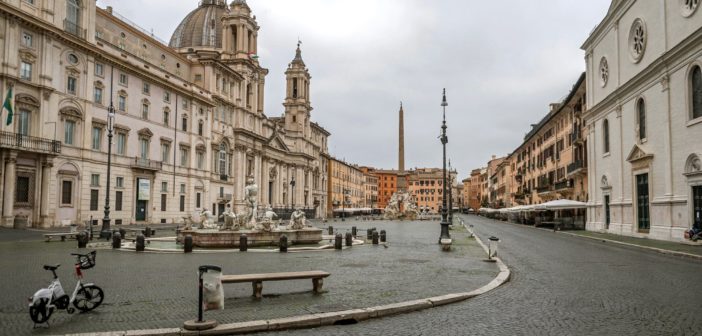By Gracie Swind, Contributing Writer
September 2020 Update:
Italy’s complete lockdown finally ended on May 4, after being extended almost a month prior, on April 10, to May 3. After two months of being locked down and closed, Italian people were allowed to return to work and reopen their businesses.
The process to reopen was slow-going for Italy, with restrictions for citizens’ movement within the country, limits on how large groups of people could gather, and the gradual reopening of different shops. Book stores, clothing stores, and business that sell food—such as restaurants, bakeries, and butcher shops—were among the first to open their doors once again.
Now, four months later, Italy is enforcing social distancing and mandatory masks, with public transport running at a maximum of 80 percent capacity, among other new measures. Italy is now facing the issue of reopening schools, putting into practice new and rigorous requirements for students and faculty to adhere to; despite concerns, the country’s health administrator, Roberto Speranza, assured Italy’s Parliament that they are ready to return.
According to Worldometers, as of the Sept. 11, Italy has had a total of 284,796 coronavirus cases and 35,597 deaths, and less than one percent of current cases are in serious or critical condition.
However, Italy’s economy, which is largely reliant on tourism, is taking a massive hit from the closures. According to a recent estimate by the World Travel and Tourism Council, Italian tourism is expected to suffer a loss of €36.7 billion this year, or about $43.4 billion, and isn’t expected to recover for several years.
Original Article:
For the first time since World War II, a democratic country has placed its people under a mandatory lockdown that could force citizens into their homes for a month or longer. COVID-19, also known as the coronavirus, had its first identified case at the end of 2019 in China. Since then, it has spread at an exponential rate, earning itself the status of a pandemic.
The first case of COVID-19 in Italy, detected on Feb. 18, was that of a 38-year-old man experiencing respiratory issues. He came into contact with several doctors before being diagnosed and isolated. Although the Italian government acted quickly to try and stifle the spread, Italy’s number of cases quickly skyrocketed.
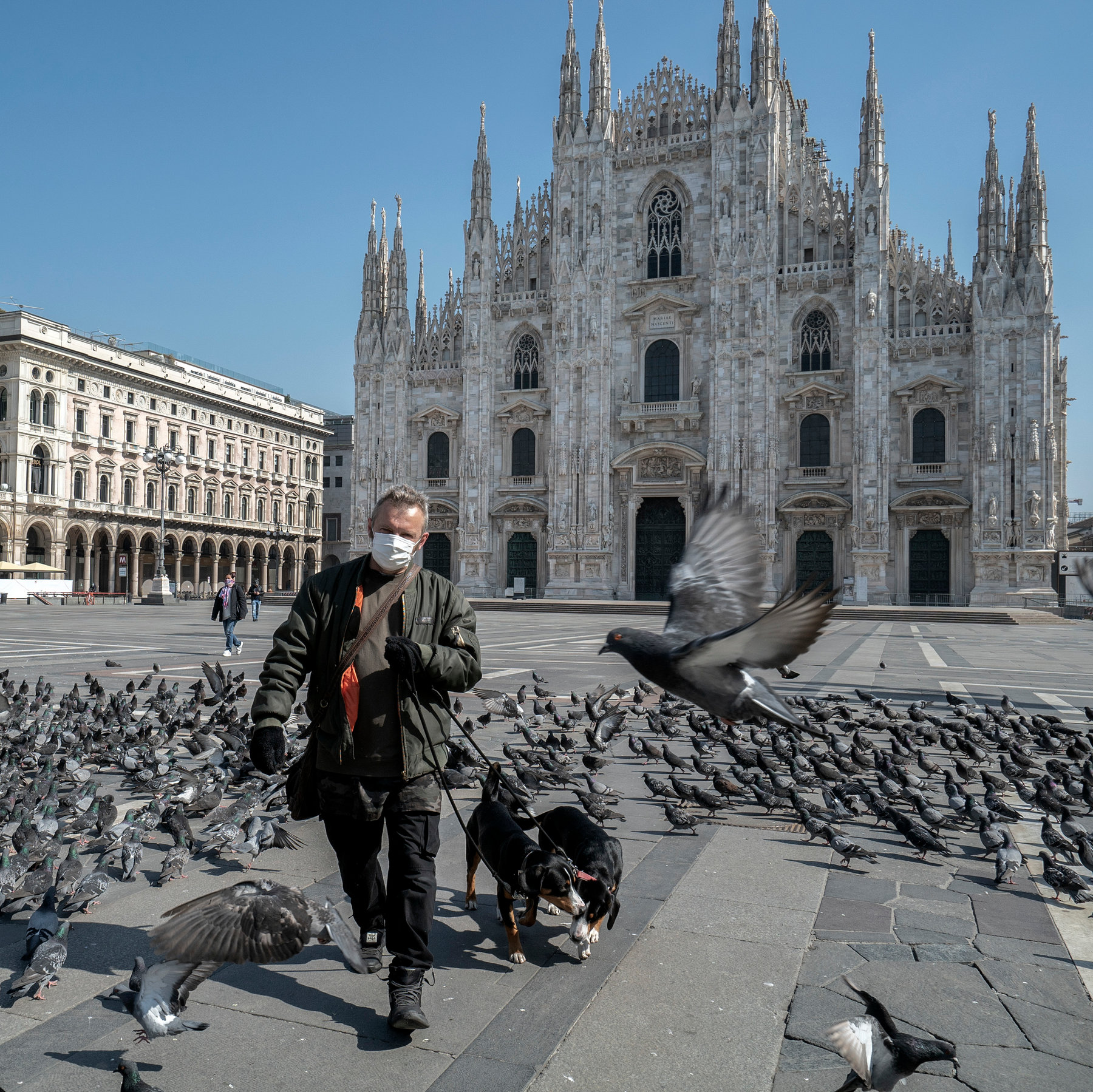
Italy’s quarantine began in the northern region of the country on Sunday, March 8, locking down movement within the ‘red zones’ and banning any movement in and out of them. Weddings, funerals, parties, schools, Mass, and cultural events were inextricably banned.
According to MarketWatch writer and Italian citizen Alison Fottrell, “pasta started flying off the shelves of supermarkets in Milan. If such panic buying was any indication, people were taking [the lockdown]seriously.”
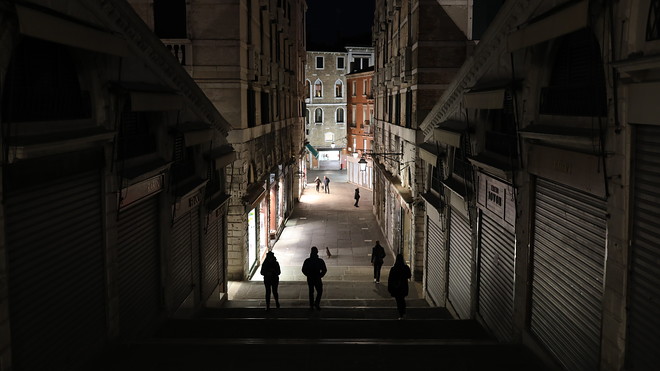
On Monday, March 9, Italy was put under a nationwide lockdown, extending the measures put in place the day before to the whole country. Over 16 million Italian citizens were told not to expect the lockdown to be lifted until at least April 3.
Italians are now facing weeks on end trapped in their homes. They must obtain special permission to leave their houses and visit the only places still open: banks, pharmacies, and groceries. Prison riots sparked by the suspension of visits caused several deaths in Italian prisons across the nation.
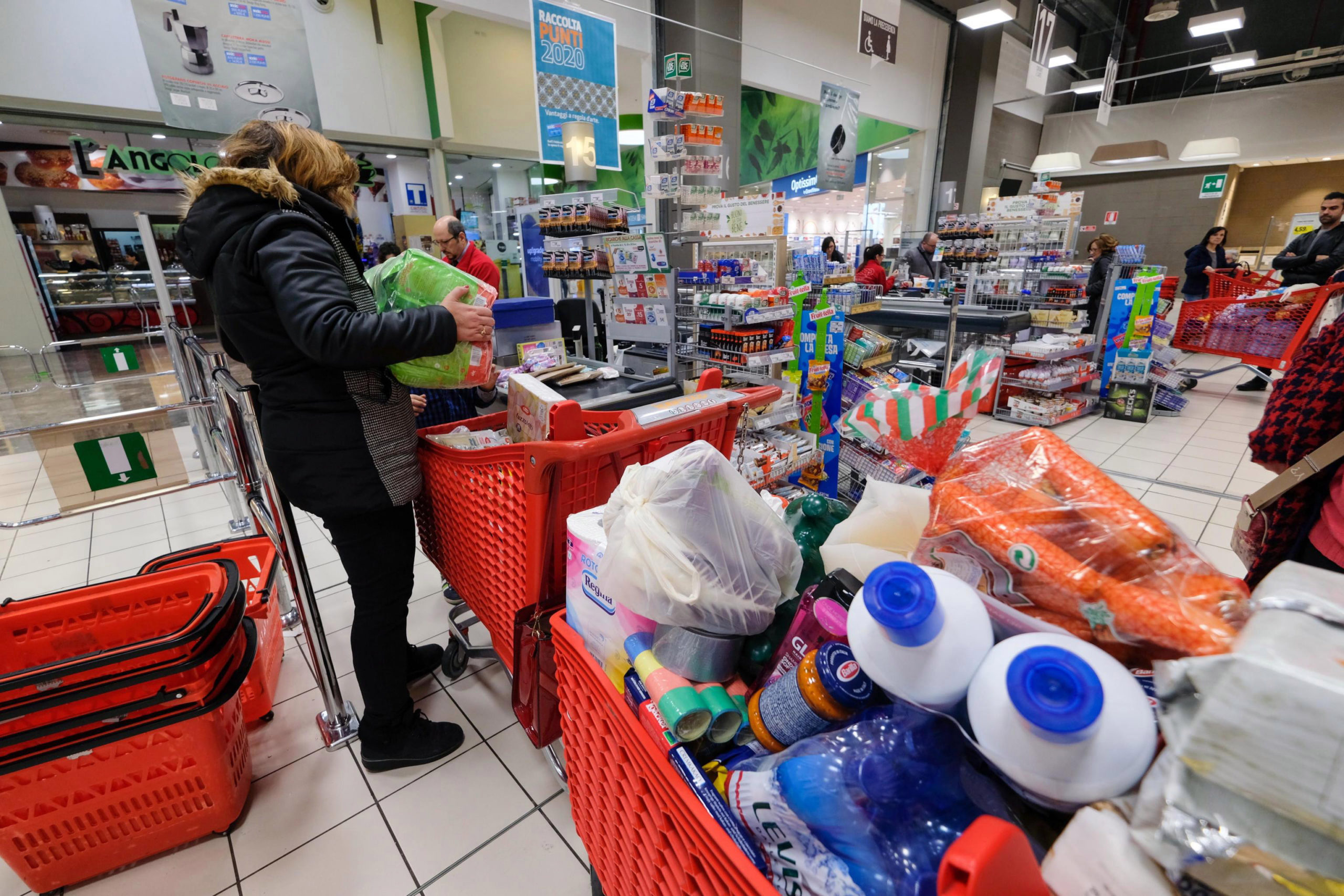
Families who were separated when the lockdown was imposed are now stuck where they were and must weather out the lockdown without one another. Citizens are coping, but it is difficult, both psychologically and physically, to be stuck in one place.
As of the writing of this article, Italy has reported almost 60,000 cases and nearly 5,500 deaths according to Worldometer. Although Italy has been the European country ravaged the worst by COVID-19, other countries have also been experiencing cases and are now facing lockdowns as a result of the virus.
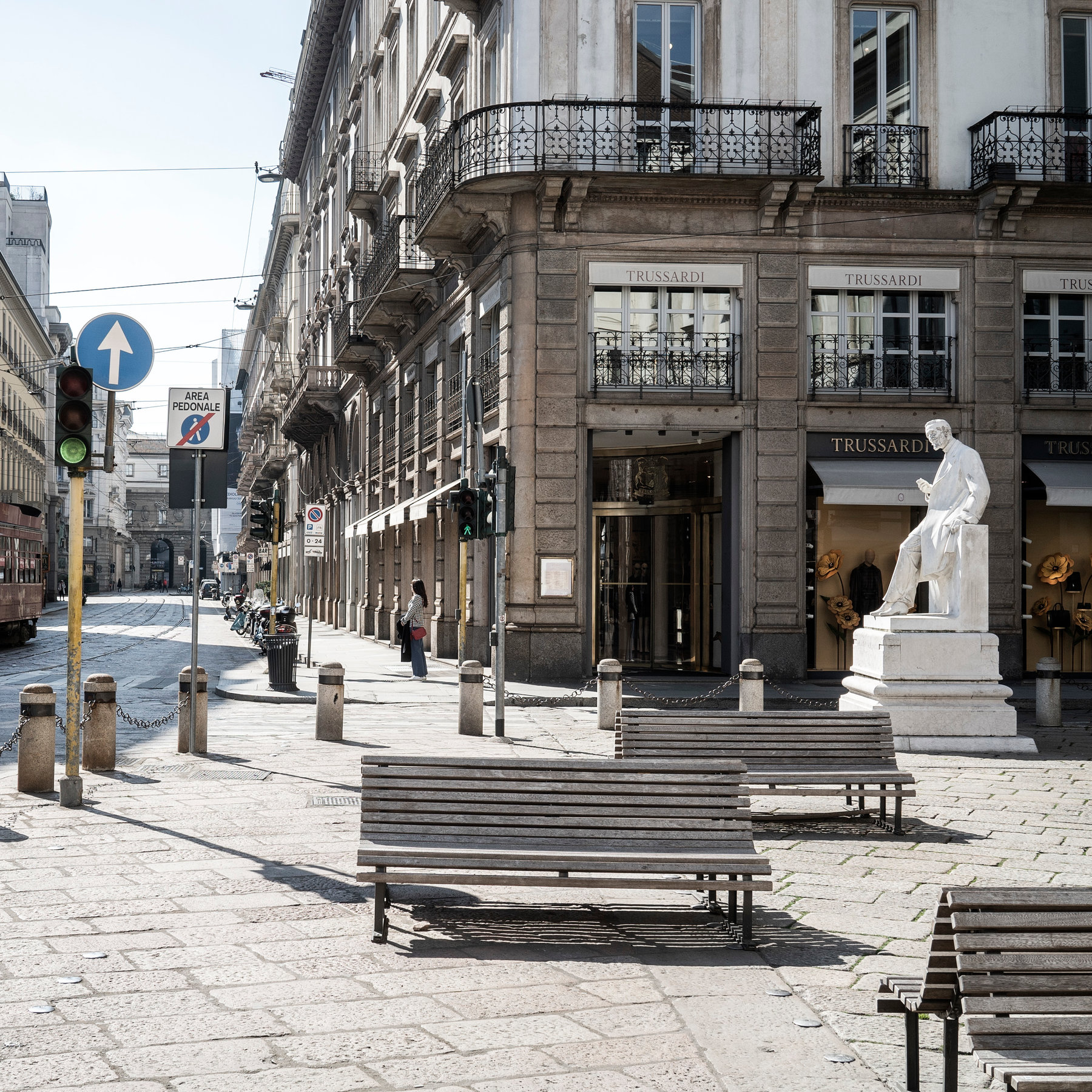
Spain has decided to close its borders and lock down its people as well. Quarantine in Spain began on Sunday, March 15. According to Lori Zaino, a writer for The New Yorker and a Spanish citizen, citizens “could be fined, or even arrested, if caught leaving [their]homes for nonessential reasons.”
The United Kingdom has also been locking down. According to The Telegraph, British Prime Minister “Boris Johnson has placed London and the rest of the UK into lockdown in an attempt to stop coronavirus spreading in the capital. Pubs, restaurants, cinemas, and cafes have all been closed down in an attempt to prevent people mixing with others and making nonessential journeys.”

France is tightening local restrictions by placing curfews and banning unnecessary travel. They plan to go into a partial lockdown on Tuesday, March 24, and anticipate the lockdown to last two to four weeks, according to France’s official Gouvernement webpage.
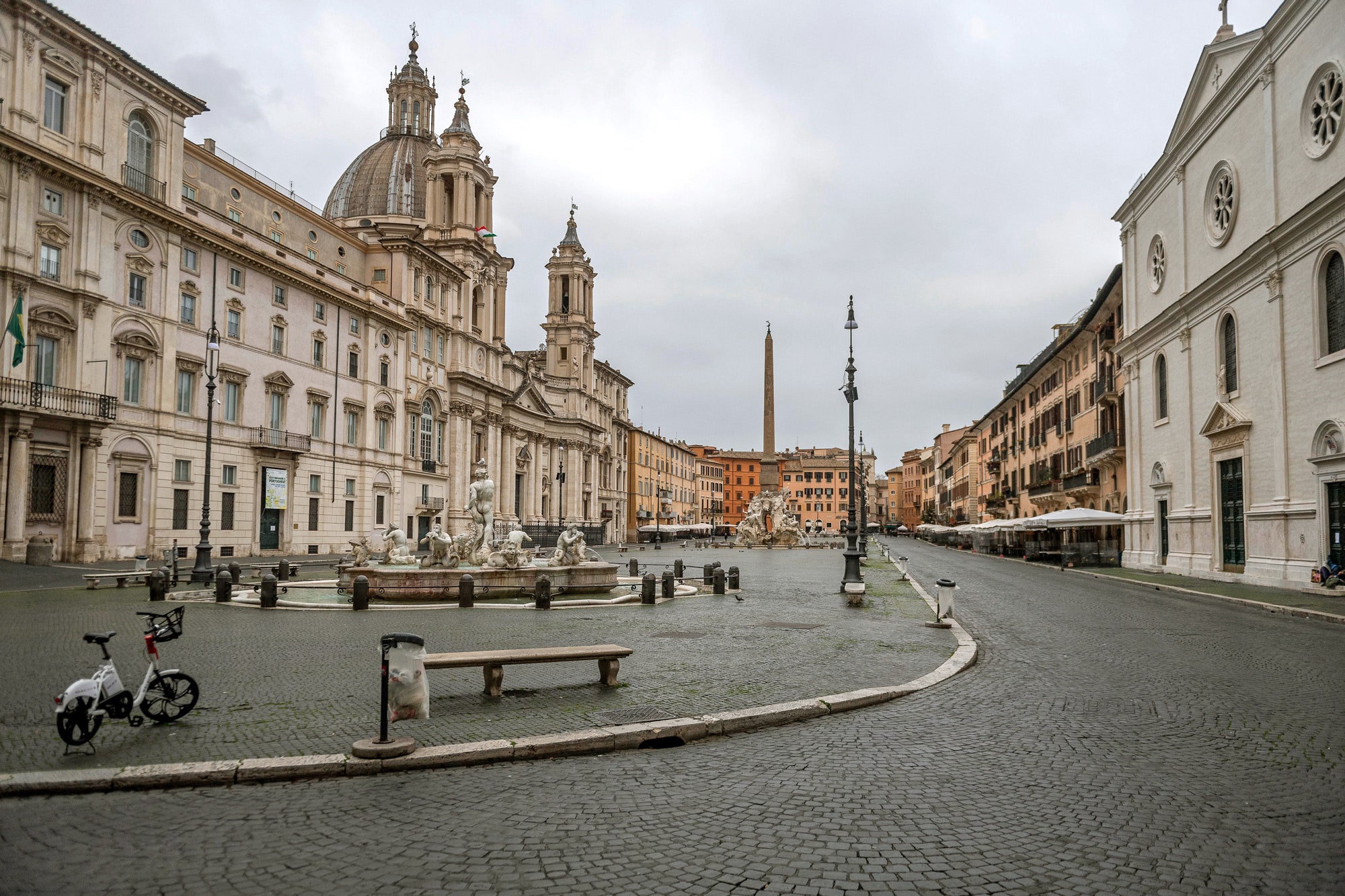
Like Florida, Italy and many of its European neighbors have economies that heavily rely on tourism. It is unclear how this shutdown will affect their economies long term. Flight attendants still traveling to Europe have noticed a distinct lack of travelers, both on the planes and in the streets.
Everything is closed, eerie, and quiet. Without tourists in places like London and Barcelona, the streets that are usually so filled with life are dead silent.

